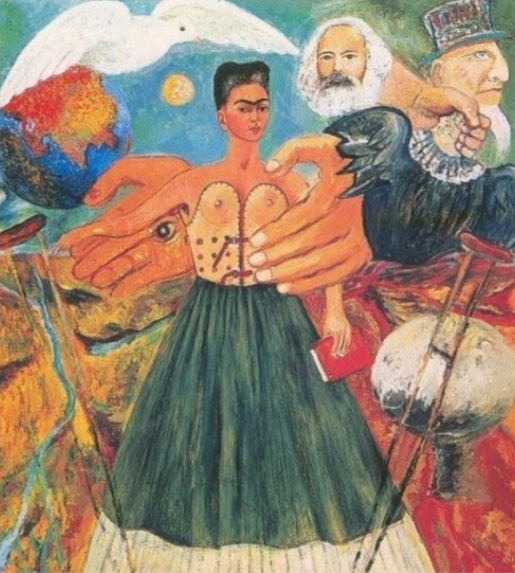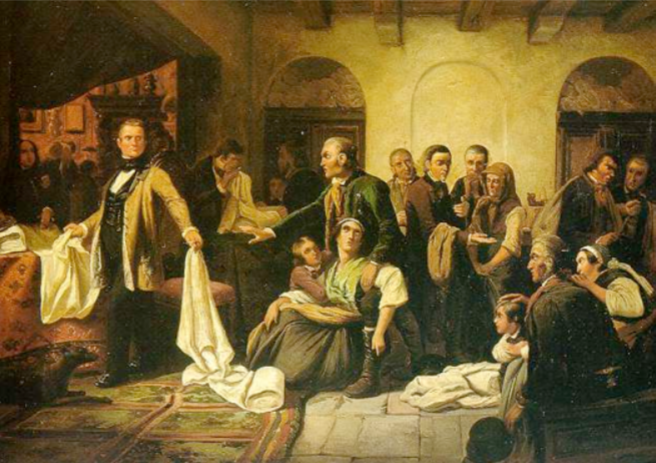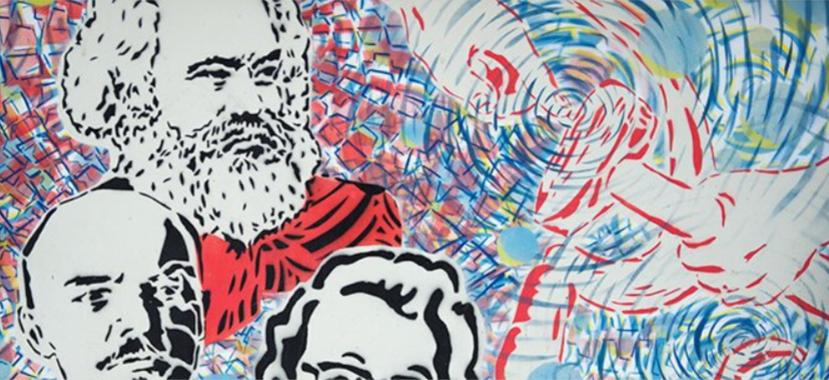Marxism

What Is Marxism?

Marxism by definition is a social, political, and economic philosophy named after Karl Marx, which examines the effect of capitalism on labour, productivity, and economic development and argues for a worker revolution to overturn capitalism in favour of communism. Marxism posits that the struggle between social classes, specifically between the bourgeoisie, or capitalists, and the proletariat, or workers, defines economic relations in a capitalist economy and will inevitably lead to revolutionary communism.1
'Marxism is a social, political, and economic theory originated by Karl Marx, which focuses on the struggle between capitalists and the working class. ... He believed that this conflict would ultimately lead to a revolution in which the working class would overthrow the capitalist class and seize control of the economy.' 2

How are the arts helping to form ideological attitudes? Art influences society by changing opinions, instilling values and translating experiences across space and time. Research has shown art affects the fundamental sense of self. Painting, sculpture, music, literature and the other arts are often considered to be the repository of a society’s collective memory. Art preserves what fact-based historical records cannot: how it felt to exist in a particular place at a particular time. Art in this sense is communication; it allows people from different cultures and different times to communicate with each other via images, sounds and stories. Art is often a vehicle for social change. It can give voice to the politically or socially disenfranchised. A song, film or novel can rouse emotions in those who encounter it, inspiring them to rally for change. Researchers have long been interested in the relationship between art and the human brain. For example, in 2013, researchers from Newcastle University found that viewing contemporary visual art had positive effects on the personal lives of nursing home-bound elders. Art also has utilitarian influences on society. There is a demonstrable, positive correlation between schoolchildren’s grades in math and literacy, and their involvement with drama or music activities. As the National Art Education Association points out, art is beneficial for the artist as an outlet for work. Art not only fosters the human need for self-expression and fulfillment; it is also economically viable. The creation, management and distribution of art employs many.3

Sources
1 https://www.investopedia.com/terms/m/marxism.asp#:~:text=Marxism%20is%20a%20social%2C%20political,capitalism%20in%20favor%20of%20communism
2 https://www.investopedia.com/terms/m/marxism.asp
3 https://www.masterpiecemixers.com/art-affect-culture-society/
Image
Marxism will give health to the sick, Frida Kahlo, 1954
https://www.culturematters.org.uk/index.php/arts/visual-art/item/2739-marxism-will-heal-the-sick-frida-kahlo-and-karl-marx
Die schlesischen Weber, Carl Wilhelm Hübner, 1846
https://courses.nus.edu.sg/course/elljwp/marxistaesthetics2.htm
Street art in San Francisco's Mission District, 2009 (Dave R / Flickr)
https://www.dissentmagazine.org/article/marxism-for-tomorrow-wendy-brown
s a generic article you can use for adding article content / subjects on your website. You can edit all of this text and replace it with anything you have to say in your news/topic article. You can also change the title listed above and add new articles as well. Edit your Articles from the Pages tab by clicking the edit button. This is a generic article you can use for adding article content / subjects on your website.
You can edit all of this text and replace it with anything you have to say in your news/topic article. You can also change the title listed above and add new articles as well. Edit your Articles from the Pages tab by clicking the edit button.


